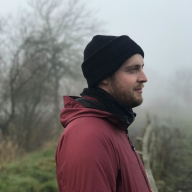
Joseph Pusey 🔸
Bio
Participation2
I currently work as a doctor near Brisbane, Australia. Right now, I'm pre-specialty training, and deciding what I want to do with the rest of my career. Possible candidates, outside of continuing in clinical medicine, are jobs in operations or research at EA-aligned Global Health and Wellbeing organisations, and I'm excited about opportunities in these fields.
I've been involved with EA through volunteering and working for One for the World, attending EAG 2022, the Cause Innovation Bootcamp, the Hi-Med fellowship, and (most importantly) my GWWC pledge to GiveDirectly.
How others can help me
I'm looking for flexible, part-time opportunities to test my fit for research or operations roles in Global Health and Development.
Posts 1
Comments22
It's not unique to EA -- although EA does tend to be quite elitist (which is reasonable, given that many of its core insights and values require a very high level of intelligence and openness to understand.)
Which parts of EA would you say require "a very high level of intelligence...to understand"? :)
Huge thanks to Jack for his work. As a volunteer and (briefly) contractor at OFTW, I always found him to be extremely thoughtful, transparent, and committed to the success and impact of the org. I think he's unusually good at, and committed to, seeking out and receiving critical feedback, more so than anyone I've met in other workplaces. On a more personal level I felt like he was interested in my wellbeing and development even as someone playing a very very minor role in the orgs work, and good fun to hang out with in the pub.
+1 for this suggestion; it seems promising for someone with a good understanding of different journals' focus areas, submission requirements, and readership to suggest potential destinations to the authors of high-quality posts. Ideally, they would offer some coaching/assistance to the author to help them through the often arduous process of submitting.
I haven't done a BOTEC but it seems potentially good to have more EA thought published in more traditional venues, if only to lend some credibility to the non-published stuff.
DOI: A doctor who sucks at research.
My answer to both of these questions is that doctoring has a fairly low ceiling in terms of how much impact one can have.
The way that healthcare systems in the developed world work means that "making a diagnosis" is a fairly small part of the day-to-day work of what doctors do. Once a certain level of experience is reached, diagnostic ability probably plateaus; some doctors might be better than others, but even if they are the impact of that discrepancy probably isn't that great. I've never (disclaimer- not been practicing very long) seen a "House MD" type situation where someone is desperately unwell because no one can make a diagnosis until some rogue genius comes along. Ready access to sophisticated investigations and interventions mean that clinical reasoning in that traditional style is probably less important than it was in the past.
You're quite right that the average biomedical researcher probably doesn't have a massive social impact; the difference is that it is possible to be 10x or 100x (1000x?) better at research than a colleague, in a way that it's not really possible to a 10x better doctor than the average.
This leads to a much more "long tail" distribution of impact in biomedical research, where a few researchers have massive impact, some have significant impact, and many have little impact. Presumably, when effective altruists suggest that research is more impactful than clinical practice, they mean that a) you might end up in that small group of very impactful researchers and b) given that possibility, and the impact if you did, the "expected value" of becoming a researcher is higher than that of becoming a doctor.
If you were asking to compare impact between the median researcher (minimal impact) and the median doctor, the impact might be much closer.
+1 on Rory Stewart- as well as being the President of GD, he was the Secretary of State for International Development in the UK, has started and run his own charity (I believe with his wife) in the developing world, has mentioned EA previously, is known to be an enjoyable person to listen to (judging by the success of his podcast), and has just released a book- and therefore might be more likely than usual to engage with popular media.

All of these sound super exciting. Small note- the website for First Embrace is pretty scrappy-feeling and there's a reasonable number of spelling/grammar issues which, were I not already familiar with AIM's work, would (?unfairly) make me less confident in the charity itself.
Examples:
I appreciate that I might be unusually sensitive to this kind of thing but seems like an easy win to me :) excited to see more of your work!